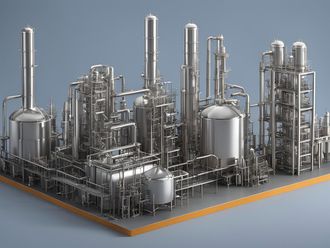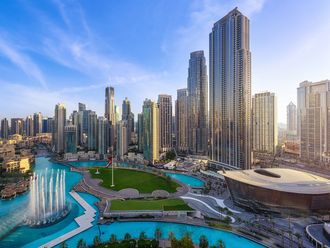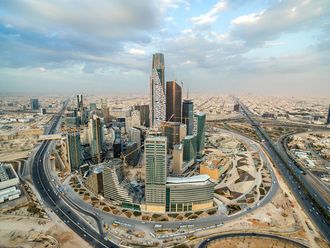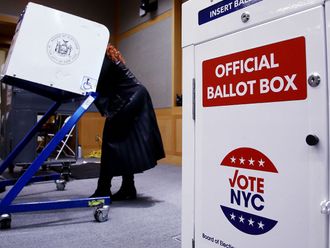Washington: International oil companies in Iraq have increased production slightly since October, with better than expected output in southern Basra's fields — indications the country's most important industry continues its recovery, according to a new US Defence Department audit.
Crude oil production averaged 2.40 million barrels per day, more than three per cent above the previous quarter and one per cent less than the same period in 2009, Stuart Bowen, the Special Inspector for Iraq Reconstruction, said in his latest quarterly report released yesterday.
That level is below Iraq's February, 2003, 2.8 million barrels per day production, the month before the US-led invasion.
Then-US Vice President Dick Cheney said in April 2003, after Saddam Hussain was driven from office, that Iraq could increase oil production to 2.5 million to three million barrels daily by year's end.
Production in May 2003 fell to 1.4 million barrels a day and then to 1.3 million later that year. It's slowly grown since.
"This quarter was good for Iraq economically," Bowen wrote in his 28th congressionally mandated quarterly report that assesses the expenditure of $58 billion in US reconstruction funds and Iraq's political and economic progress, as the last of the US troops prepare to leave by December.
"The Iraqi government's aggressive efforts to attract foreign capital investment continued to bear fruit.
Lucrative
"Moreover, several international oil companies working to develop Iraq's lucrative southern oil fields, reported better-than-expected progress, including the super-giant Al Rumaila field," Bowen wrote.
The Anglo-Chinese consortium of BP and the Chinese National Petroleum Corporation reported this month increased production at Al Rumaila by more than 10 per cent above the initial rate of 1.066 million barrels per day agreed to with the Iraq government when it won the oil business in 2009.
In northern Iraq, the Ninewa Oil Commission said in November production at the Batna oil field had resumed after 20 years.
Pipeline security has improved, with the number of daily attacks "significantly reduced as government cooperation grows with local residents," he wrote.












